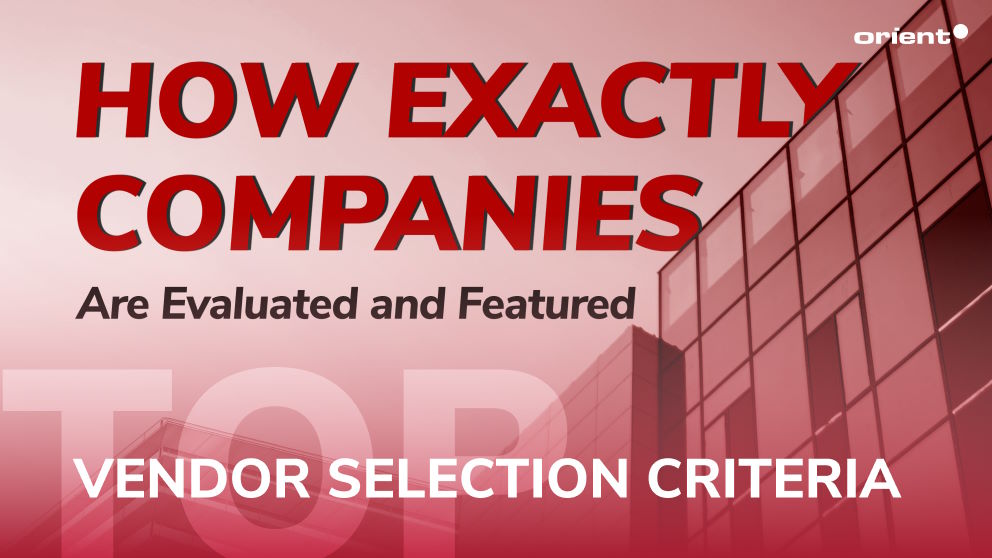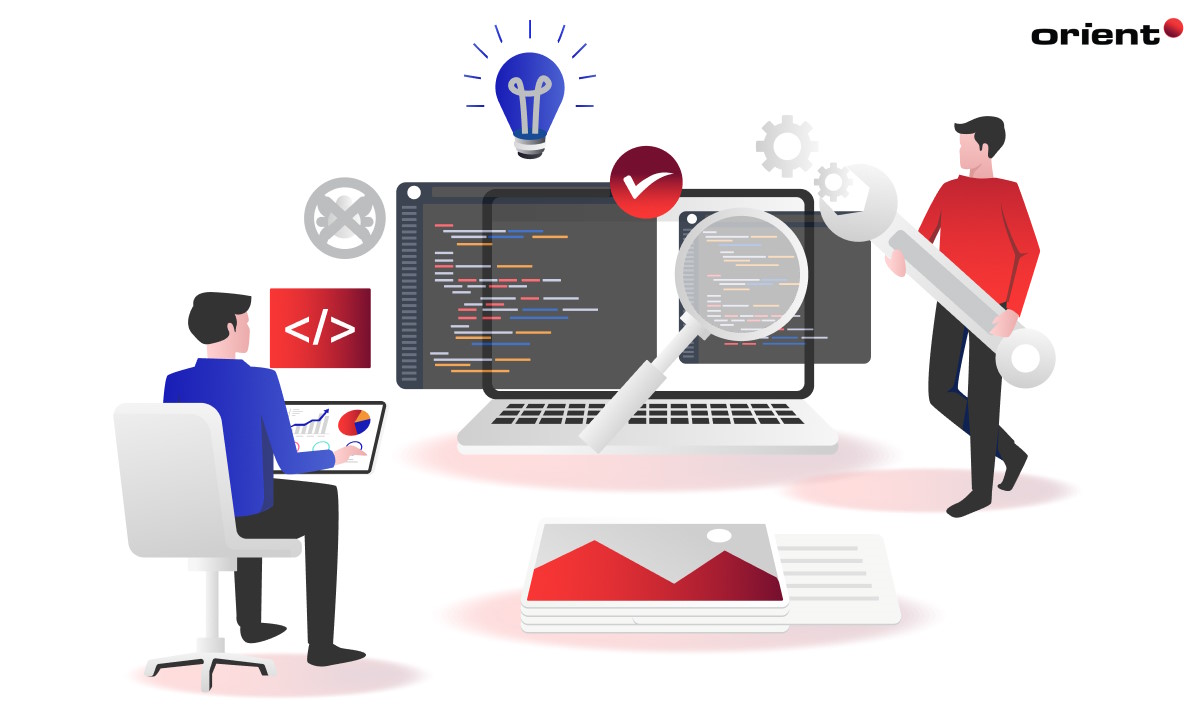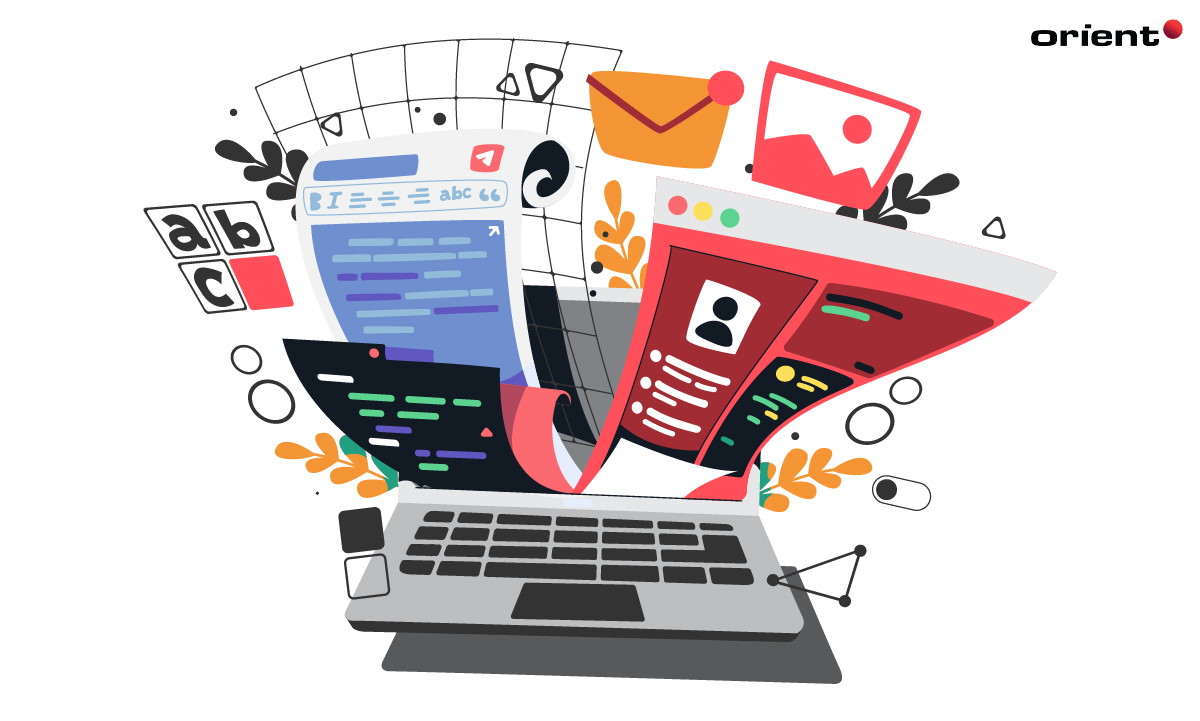IT Top Vendor Selection Criteria: How Exactly Companies Are Evaluated and Featured

Content Map
More chaptersWith the continuous development of digital transformation, today’s clients have been presented with numerous new partnership opportunities and avenues for customer service companies. Outsourcing services, for example, have become increasingly popular as businesses, regardless of size, seek to leverage expertise and resources to streamline operations and drive growth. Based on statistics, the revenue in the IT outsourcing industry will reach approximately US$460.10 billion by the year 2023. This statistic not only demonstrates customers’ strong tendency to use outsourcing services but also reflects the recent growth in professional organizations based on supply and demand.
Customers undoubtedly have more than one choice to access potential vendors. However, selecting a vendor is more complex than what most people assume. If you are still choosing a potential supplier based solely on years of experience or low cost, you are losing many good opportunities to stay competitive in an increasingly interconnected world. In fact, the chosen vendor is formed by meeting a series of listed selection criteria and methods specified by the customer. Assessing vendors from all angles leads to successful vendor selection and mutually beneficial partnerships throughout the procurement process. So, what are the best vendor selection criteria for your business to choose the right fit?
The Importance of Effective Vendor Selection Process

Choosing the right vendor can be considered a vital business investment as it directly affects the business’s ability to effectively deliver products or services to its customers. However, upon closer examination, companies can swiftly recognize that the possible advantages of an effective vendor selection process are not limited to this aspect alone.
Delivering Quality Assurance for Products & Services
Product quality and customer satisfaction are the prerequisites for the success of software projects in the competitive market. By thoroughly conducting a vendor selection process, businesses have a more detailed view of the third party’s products, services, and expertise, thereby ensuring the selected companies are able to meet their required quality standards during the collaboration process. The proven track records of the vendors in past performance are the clearest evidence of their history of delivering high-quality products and having robust quality control processes in place.
Offering a Higher Level of Cost-effectiveness
The process of evaluating vendors allows businesses to be more proactive in learning about the outsourcing market before deciding to cooperate. An overall picture of the tech market in the modern context through market research helps businesses evaluate different potential suppliers and compare their offerings in terms of quality, price, and value.
Thorough understanding and preparation of these favorable terms enables businesses to better negotiate reasonable pricing, leading to cost-saving and increased profitability advantages while meeting the required quality standards. An effective vendor selection process also helps identify opportunities for improvements within the partnership process, which reduces costs even further.
Mitigating Types of Risk
The vendor selection process basically involves evaluating factors like the vendor’s reputation, financial stability, and compliance with legal and regulatory requirements. Understanding and accessing these criteria helps businesses mitigate various types of risks that may have a negative impact on their image and operations. Specifically, businesses need not worry about risks related to product quality issues, supply chain disruptions, or non-compliance with regulations if they partner with reliable vendors who have good reputations. With robust data security measures in place, reputable vendors reduce the risks of data emphasized or unauthorized access to sensitive information, which can lead to loss of competitive advantage.
IT Vendor Selection Criteria Checklist to Choose the Right One

You cannot judge a book by its cover. It cannot be denied that consulting the websites of potential vendors before deciding to cooperate is one of the ideal methods to evaluate them. However, what is shown on online visuals are only the positive aspects of the products and services that the third party wants to show to customers. Evaluating a vendor is not that simple since there are tons of other factors to consider.
#1 Pricing & Customer Perceived Value
Pricing is one of the most important factors in vendor selection processes because it directly affects the business’s financial strategy. If the budget allocated for software product development services is too large, it will be difficult for the business to promptly cover budget requirements for other operating activities and vice versa. Evaluating prices proposed by different vendors helps businesses compare, achieve better terms through competitive bids, assess affordability, and determine whether the vendor’s offerings align with their budgetary constraints.
However, pricing alone is not sufficient enough for businesses to make informed decisions. Is perceived worth or benefits derived from the service worth the price charged? That is what makes the difference. The saying “You get what you pay for” holds true. It’s wise to be careful when dealing with vendors who offer prices that seem too good to be true since poor quality can result in additional charges or negative consequences in the long run.
As a helpful tip, don’t forget to establish good communication, ask for more than one bid, and read reviews before making a purchase to get the best value for your money.
#2 Range of Services
The technology industry has grown and expanded to a state that humans can hardly believe. With different fields of operation, from finance to education, businesses look to outsourcing to fill a variety of uses suitable for each tech niche. Considering the breadth of services offered by third-party vendors in this situation plays an essential role in every selection process. Businesses can partner with a vendor that only specializes in a certain service. However, it is a vendor with a various portfolio of services that can offer greater flexibility and scalability to customers. Why?
With a wide range of services offered, vendors have the ability to immediately meet business needs and future expansion requirements, helping you avoid hiring additional vendors to cover multiple project aspects. As a one-stop shop for clients’ various needs, potential suppliers providing diversity also have extensive experience in accessing a comprehensive set of solutions and tools. Businesses can completely put their trust in the vendor for various aspects of their operations while focusing on the core competencies.
#3 Product Quality & Vendor Performance
Businesses always strive to bring the highest quality software products to their customers, and they expect the same from their vendors. This explains why product quality and vendor performance are two vital vendor selection criteria that appear in this list since they profoundly impact brand reputation and customer satisfaction. By selecting a vendor with a proven track record of performance, businesses ensure their product or service requirements and responsiveness to inquiries or issues are well-meet, thereby contributing to overall business growth and success.
However, evaluating the quality of the vendor’s products and services is not easy. Businesses need to carefully consider numerous factors, including vendor’s previous work, development team expertise, communication effectiveness, reliability, adherence to contractual obligations, etc., to assess their quality standards initially.
#4 Business Presence
Business presence refers to all factors, such as visibility, reputation, and overall standing, which act as the “representative face” of vendors to the target audience, clients, and industry or market. Selecting vendors based on business presence is an important vendor selection criterion that any business needs to pay attention to. A supplier with a strong business presence is usually an outsourcing company that has a proven ability and a solid track record to deliver on their promises. With market insights, industry knowledge, and the agility to stay ahead of trends or developments, they are likely to provide more innovative solutions and gain a competitive edge.
Furthermore, a company’s online presence also reflects its work ethic. For example, an outsourcing company website with an attractive visual appearance indicates that the vendor is meticulous, while a poorly designed one implies the opposite. However, it is important to note that business presence is not always a reliable indicator of a vendor’s capabilities or suitability, as it is just what the vendor wants to reveal to the public.
#5 Delivery Punctuality
Each project and each customer has its own time requirements for a specific job. Depending on the workload, number of in-house developers, and available support tools, each vendor will have a different timetable for completing the order. In order for the enterprise software development process to go smoothly and the product to reach end users promptly, it is recommended for businesses to discuss clearly the timeline throughout the vendor relationships. The speed and reliability with which a vendor can deliver the products or services are crucial factors to consider when choosing a vendor. Being able to deliver products or services quickly can help businesses respond better to user demand and capitalize on market opportunities, creating competitive advantages.
On the other hand, the consequences of late delivery timing are more than just delays. For instance, if a vendor delivers raw materials late, it can disrupt production schedules and result in idle workers, missed deadlines, and reduced productivity. Besides, the delay of the product or service delivery also further leads to dissatisfied customers. Word-of-mouth negative publicity is currently one of the most powerful weapons, causing businesses to fall into financial losses when customer churn rate increases and brand reputation gradually declines.
#6 Financial Stability
Financial stability is an important vendor selection criterion because it ensures that a vendor has the financial resources to fulfill contractual obligations and deliver quality software products as agreed upon. By working with financially stable vendors, businesses do not need to worry about the risks of vendor default or non-performance during the cooperation process. With enough resources to invest in research and development, vendors with financial stability ensure the continuity of their operations and timely delivery of their own products or services, increasing commitment to customer product or service delivery.
Conducting financial checks, requesting references from previous clients, or even checking their credit history are some effective methods to evaluate financial stability criteria at a vendor.
#7 Customer Services
Customer services is not simply the way potential vendors take care of customers; it is also an important criterion to help evaluate the ability to communicate and collaborate between parties. A comprehensive customer service of a vendor represents a whole organization. While suppliers with strong customer deliveries are more likely to take good care of clients before, during, and after services, insufficient ones can lead to frustration, misunderstandings, and, ultimately, a breakdown in the vendor-client relationship.
In order to evaluate vendors’ customer service, businesses should consider factors such as communication skills, response time, flexibility, and availability, as such factors demonstrate professionalism and the ability to meet product expectations and mitigate potential challenges or cyber security risks that may arise during the vendor-client relationship.
#8 Recommendations
If you are still confused in the vendor selection process, it is time to ask for recommendations, as they are valuable insights into a vendor’s past performance and reputation. Although the information provided by third-party suppliers on social networks and websites is a necessary source of data to evaluate a vendor’s performance, nothing other than testimonials is the most accurate assessment. By gathering recommendations from former clients, businesses have a more objective view of the software service they are about to use, thereby removing vendors with red flags or warning signs from the list.
Evaluations of the vendor’s track record, reliability, and quality of work from trusted sources, such as colleagues or industry experts, are also especially helpful when they offer purely unbiased insights into a vendor’s capabilities. However, these recommendations need to be carefully reviewed because not all of them are true.
How to Properly Navigate the Supplier Selection Process

Selecting a vendor is an extremely important process that affects the success of the whole project. The instructions below may give you some clues.
Identify the business requirements and needs, such as project scope, level of expertise, etc.
Consider any business constraints, including budget, timeframes, etc.
Search for potential vendors through sources like online directories, google search, referrals, industry associations, or trade shows and make a complete list.
Create an RFI (Request for Information) and send it to potential vendors to get back basic information about them.
Send an RFP (Request for Proposal) to shortlisted vendors meeting the criteria to gather more details about your project requirements.
Review and evaluate vendor proposals to select the likely best-matching vendors.
Set up meetings, negotiate, and choose a vendor that best meets your requirements and award the contract.
Pulling together a vendor selection process can take months. So, be careful at each step and carefully review the vendor selection criteria before making the final decision. Choosing the wrong garment supplier causes the business to start over the entire process with an IT project transition plan, which is complex and time-consuming. If you are still looking for a perfect match, consider Orient Software as a reputable outsourcing company with decades of experience in the tech industry. With a variety of services provided and a large pool of talent, let us help you maximize the potential of your project. Feel free to contact us.







